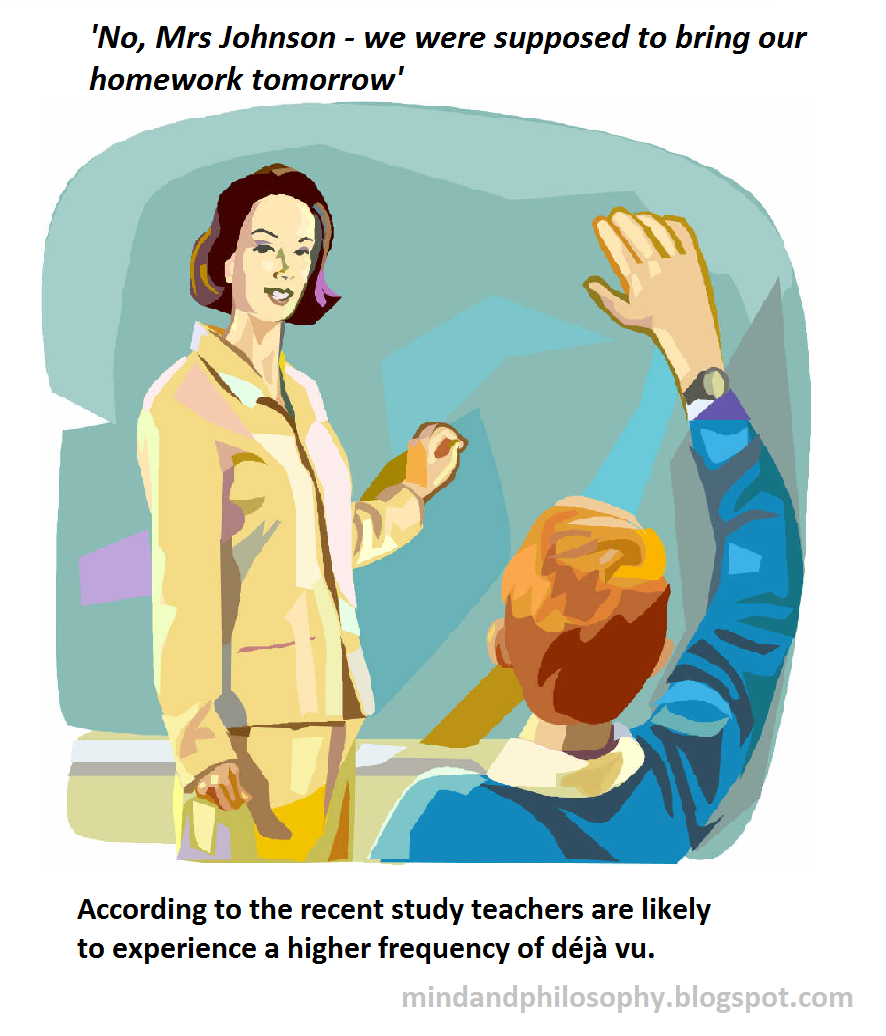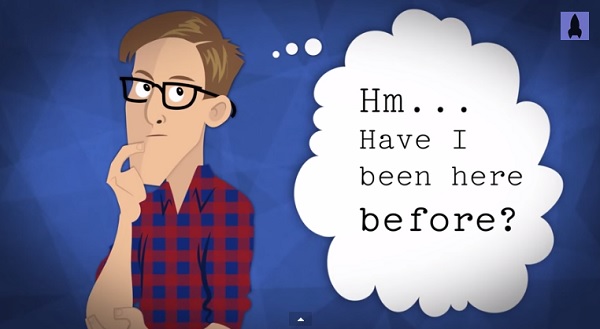
Sometimes we see and experience things that we recognize or that look like other things we have already seen. In this picture, you are watching a video of a monkey riding a goat for the first time so it feels like a funny, new thing. Our memories typically work very well and we can usually trust the feelings of memory we experience. We all go through our lives seeing and experiencing things that we may remember later on.

Figure 1 - What is and what is not a déjà vu experience?.They are unusual but cool experiences that can actually tell us a lot about how our minds, particularly our memories, work. Déjà vu experiences are often described in movies and books, because they can make people feel like they have somehow seen into the future. Of course, you have been in the situation before – you have walked to school many times – but the feeling is so strong and so connected to right now, that you know it should not feel as overwhelming as it does (see Figure 1 for more explanation of what déjà vu is). For example, you might be walking to school when you suddenly feel like you have been in exactly this situation before. In this article, we review recent research on déjà vu including what it is, how common it is, and why scientists think it happens.ĭéjà vu, pronounced day-zhaa voo, is French for “already seen.” It describes the fascinating and strange experience where you feel that something is very familiar but you also know that this feeling of familiarity should not be as strong as it is. Many of us report our first experiences between the ages of 6 and 10. Young people experience déjà vu the most. On the other hand, Deja vu is the title of a film starring Denzel Washington, where the phenomenon is explained as warning signs that come from the past or signs for the future.Déjà vu describes the strange experience of a situation feeling much more familiar than it should.
#Deja vu definition movie
In the cinema, the movie Matrix shows déjà vu as a failure that can be perceived in the system. Simple to understand, right?įinally, it should be mentioned that déjà vu is frequently mentioned in popular culture or in artistic works. In that case, the brain would understand the present as a memory. And that for some reason, before analyzing the present, keep it as a memory. Imagine that your brain has a space for store the memories and another where he analyzes the experiences that are taking place in the present.
#Deja vu definition how to
It should be noted that those who suffer from this disease They are very afraid of being alone, because they perceive that this phenomenon is more powerful than they and they do not know how to deal with it In addition, the constant repetition of the sensation that this disorder causes, in many cases can trigger depression.Ī programmer friend gave me an absolutely simple explanation on this complex topic, which I would like to share. They added that, in addition, the way of storing the facts is different from the sensations that these facts cause and there is a lag between both actions that in any other person they work together. It is also a disorder that could be linked to high levels of stress and fatigue, with random alterations of the memory, crisis of epilepsy or dreamlike or unconscious fantasies.Īs explained by scientists from the University of LeedsThose who suffer from chronic déjà-vu have an over-activity in the memory processing circuit in other words, it never relaxes, it is remembering all the time. Most of the people with this pathology They have suffered a head injury or stated that for a time they felt chronic pain, symptoms possibly related to a physical deficiency that causes déjà vu, a deficit in the functioning of the temporal lobe. These individuals are prone to depression and memory dysfunctions.

There are people who suffer from chronic déjà vu, that is to say that absolutely everything they experience is perceived as having already happened.

In general, déjà vu are divided into two classes: the déjà vécu (what the individual feels he has already lived) and the let me feel (something that the person already felt, although it is not part of their memory baggage).Īccording to the studies developed around this concept, a déjà vu is associated with regards that a person has (either because of something they have lived, felt or dreamed of) and it is an experience that affects especially young people whose age is between 15 and 25. In general, despite people’s belief, the alleged preceding experience is attributed to dream creations. Phrases where the term appears: «I had a déjà vu: I feel like I’ve been in this house before», “I saw the news and I thought it was déjà vu”, “Tell Claudio that it is not déjà vu: I have already told him about ten times that he has to read the report and make a summary”.ĭéjà vu, also known as paramnesia, makes the subject feel that they are experiencing something familiar but that, at the same time, it is strange to them.


 0 kommentar(er)
0 kommentar(er)
